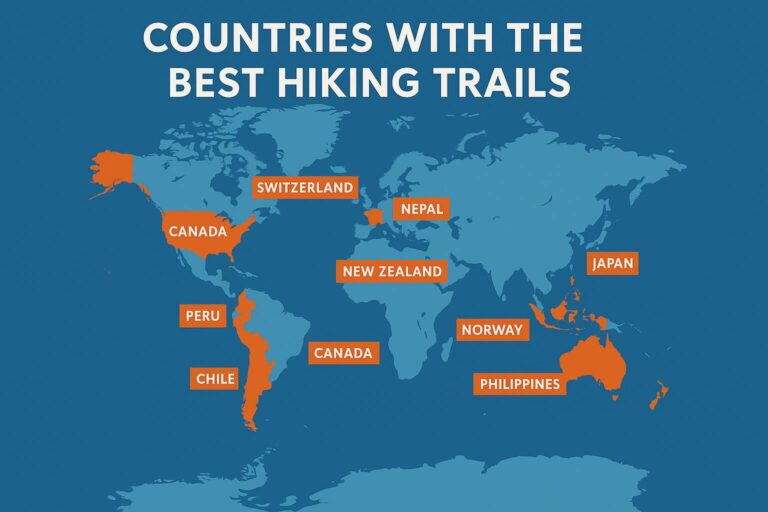Backpacking can be a thrilling and rewarding experience, but it’s important to pack smart and consider the weight of your gear. Carrying too much weight can lead to discomfort, exhaustion, and even injury.
In this blog post, I’ll explore the concept of average backpacking weight, discuss factors that impact backpacking weight, and offer tips and strategies for reducing weight without sacrificing essential gear. Whether you’re planning a short weekend trip or a multi-day trek, packing smart and reducing weight will help you enjoy your journey to the fullest. So, let’s dive in and learn how to pack smart for your next backpacking adventure.
Understanding Average Backpacking Weight
When it comes to backpacking, understanding the concept of average backpacking weight is crucial. Average backpacking weight refers to the weight of all the gear, equipment, and supplies you’ll be carrying with you on your backpacking trip. This includes your backpack, tent, sleeping bag, clothing, food, water, and any other essentials you may need.
The actual weight of your backpacking gear will vary depending on several factors. These factors include the duration of your trip, the climate you’ll be traveling in, the terrain you’ll be covering, and the weight of your gear items.
In general, backpacking experts recommend keeping your backpacking gear weight at or below 20% of your body weight for a comfortable and safe experience. To determine the recommended weight limit for your backpacking gear, you can use a simple formula: Multiply your body weight by 0.2. For example, if you weigh 150 pounds, your recommended backpacking gear weight should not exceed 30 pounds.
It’s important to note that while reducing weight is important, you should never sacrifice essential gear or safety items for the sake of reducing weight.
Tips for Reducing Backpacking Weight
Reducing backpacking weight doesn’t mean leaving behind essential items or sacrificing comfort. By packing smart and choosing lightweight gear, you can reduce your backpacking weight without sacrificing the necessary gear for a safe and enjoyable trip. Here are some tips and strategies for reducing backpacking weight:
- Select the right backpack: Choosing the right backpack is key to reducing weight. Look for a lightweight backpack, that fits comfortably, and has enough capacity to hold your gear without being too big.
- Pack essential items only: Only pack what you need, and leave behind unnecessary items. Make a list of essentials like a tent, sleeping bag, food, and water, and stick to it.
- Choose lightweight gear and equipment: Invest in lightweight gear and equipment, such as a lightweight sleeping bag, tent, and backpacking stove. Opt for high-quality, durable gear that will last for multiple trips.
- Plan meals and water consumption: Plan your meals and water consumption carefully to avoid carrying excess weight. Consider packing dehydrated meals and water filtration systems to reduce weight.
- Other strategies for reducing weight: Consider wearing lightweight clothing, using hiking poles to reduce stress on your joints, and sharing gear with other backpackers to reduce weight.
If you follow these tips and strategies, you can significantly reduce your backpacking weight without sacrificing essential gear or comfort.
Essential Gear for Backpacking
When it comes to essential gear for backpacking, there are a few key items that you’ll need to ensure a safe and comfortable trip. Here’s an overview of some of the most important gear, along with weight considerations for each item:
- Backpack: Your backpack is the most important piece of gear for backpacking. Choose a lightweight backpack that’s comfortable and has enough capacity to hold your gear without being too big. Look for a backpack that weighs between 2-5 pounds.
- Tent: Your tent will provide shelter and protection from the elements. Look for a lightweight, durable tent that’s easy to set up and weighs between 2-5 pounds.
- Sleeping bag: Your sleeping bag will keep you warm and comfortable at night. Choose a lightweight sleeping bag that’s appropriate for the climate you’ll be traveling in. Look for a sleeping bag that weighs between 2-4 pounds.
- Sleeping pad: Your sleeping pad provides cushioning and insulation from the ground. Choose a lightweight, compact sleeping pad that’s easy to pack and weighs between 1-2 pounds.
- Cooking stove: A backpacking stove is essential for cooking meals and boiling water. Look for a lightweight, compact stove that’s easy to use and weighs between 1-2 pounds.
- Water filter: A water filter or purification system is necessary for ensuring that your water is safe to drink. Look for a lightweight, compact water filter that’s easy to use and weighs between 1-2 pounds.
- Clothing: Choose lightweight, moisture-wicking clothing that’s appropriate for the climate you’ll be traveling in. Consider packing layers that can be easily added or removed as needed.
By choosing lightweight gear and equipment and packing only the essentials, you can significantly reduce your backpacking weight without sacrificing comfort or safety.
Examples of Backpacking Weight Breakdowns
Backpacking weight breakdowns will vary depending on the length of your trip, the climate you’ll be traveling in, and the terrain you’ll be covering. Here are some examples of backpacking weight breakdowns for various trip lengths and terrains:
Weekend trip in mild weather
- Backpack: 2-3 pounds
- Tent: 2-3 pounds
- Sleeping bag: 2-3 pounds
- Sleeping pad: 1-2 pounds
- Cooking stove: 1 pound
- Water filter: 1 pound
- Food and water: 5-7 pounds
- Clothing: 2-3 pounds
Total backpacking weight: 16-20 pounds
Week-long trip in moderate weather
- Backpack: 2-4 pounds
- Tent: 2-4 pounds
- Sleeping bag: 2-4 pounds
- Sleeping pad: 1-2 pounds
- Cooking stove: 1 pound
- Water filter: 1 pound
- Food and water: 15-20 pounds
- Clothing: 3-5 pounds
Total backpacking weight: 27-37 pounds
Multi-week trek in rugged terrain
- Backpack: 3-5 pounds
- Tent: 3-5 pounds
- Sleeping bag: 3-5 pounds
- Sleeping pad: 1-2 pounds
- Cooking stove: 1 pound
- Water filter: 1 pound
- Food and water: 25-30 pounds
- Clothing: 4-6 pounds
Total backpacking weight: 41-53 pounds
Remember, packing smart and choosing lightweight gear is key to a safe and enjoyable backpacking trip.
Conclusion
In conclusion, understanding average backpacking weight and packing smart is crucial to a successful and enjoyable backpacking trip. By choosing lightweight gear, packing only the essentials, and planning your meals and water consumption carefully, you can significantly reduce your backpacking weight without sacrificing comfort or safety.
Remember to select the right backpack, tent, sleeping bag, and other essential gear that is appropriate for the climate and terrain you’ll be traveling in. Planning ahead and preparing for unexpected situations is also important to ensure a safe and enjoyable trip.
Reducing your backpacking weight allows you to move more freely and enjoy your surroundings without feeling weighed down. So, pack smart and enjoy the journey with a lighter load!








